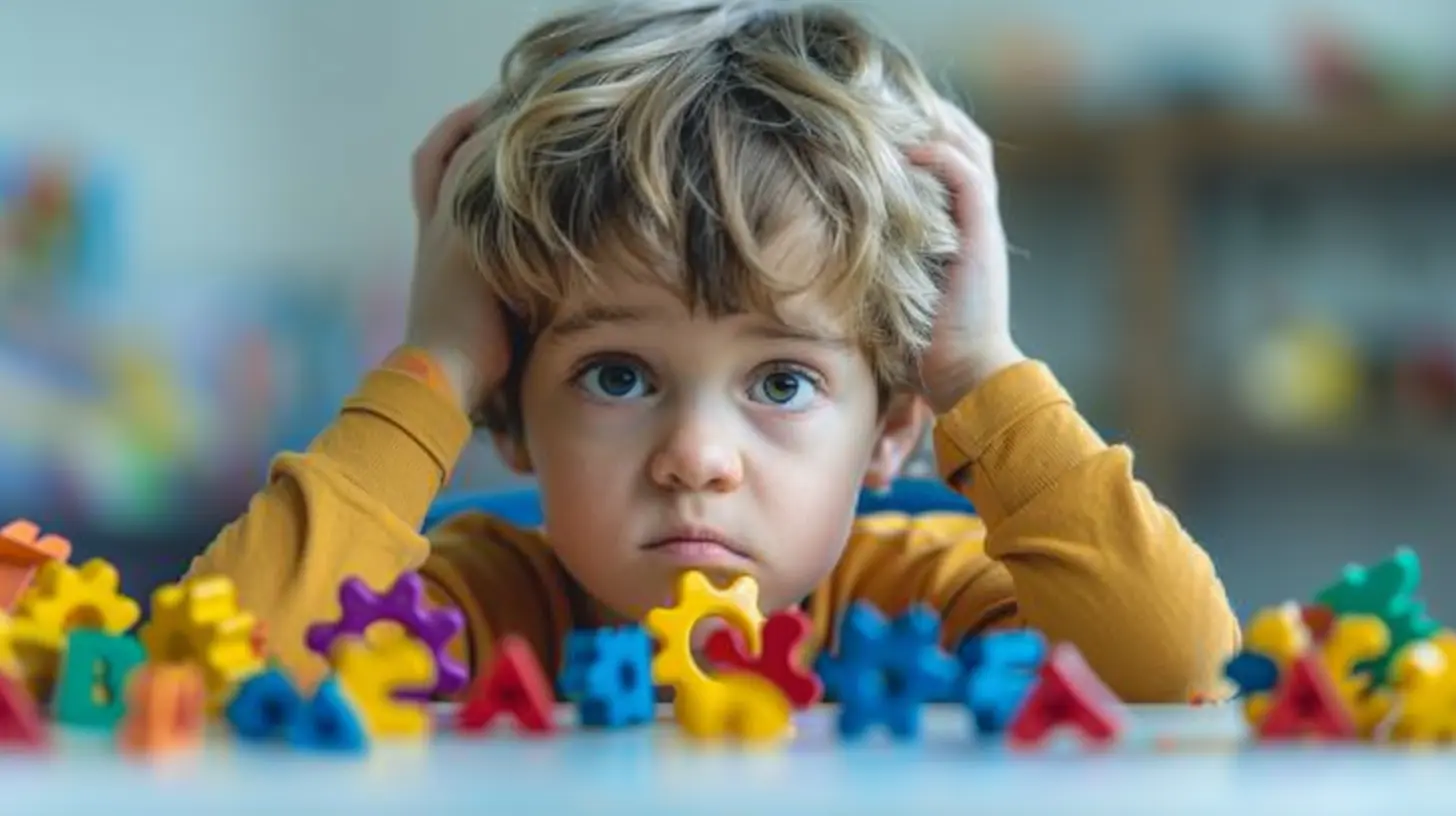Understanding Cognitive Delays in Early Childhood
14 October 2025
Cognitive development in early childhood is a bit like watching a flower bloom—it unfolds slowly, beautifully, and uniquely for every child. But what happens when that development doesn't seem to be progressing like we expected? That’s where cognitive delays step into the conversation.
If you're a parent, caregiver, teacher, or simply someone trying to wrap your head around why a little one isn’t meeting their mental milestones, this guide is for you. Let’s dive deep into the world of cognitive delays in early childhood and understand what causes them, how to spot the signs, and what steps you can take to help.
What Are Cognitive Delays?
Okay, let’s first clear up what we’re talking about. Cognitive delay refers to when a child shows a slower rate of mental development than other kids their age. This doesn’t mean the child can't learn—it just means they develop at a different pace, and often need extra support along the way.Think of it like two kids running a race. One races ahead, while the other jogs at a slower pace—but both can still reach the finish line. The goal isn’t to compare—it’s to understand and help.
Why Cognitive Development Matters
Cognitive development is at the heart of everything a child does—thinking, learning, reasoning, problem-solving, and even forming memories. It’s the engine that powers communication, social interaction, curiosity, and independence.So, if that cognitive engine is running slower than usual, it can affect other areas of life too—like speech, motor skills, and emotional development.
Common Causes of Cognitive Delays
You might be wondering, “Why does this happen?” There are many possible reasons, and sometimes it's a mix of factors. Here are a few of the most common causes:1. Genetic Conditions
Some cognitive delays arise from conditions present at birth, like Down syndrome or Fragile X syndrome. These genetic factors influence how the brain develops right from the get-go.2. Premature Birth
Babies born too early often miss out on crucial brain development that happens in the final weeks of pregnancy. This can lead to delays in thinking and learning skills.3. Environmental Factors
Children need a nurturing environment to thrive—think of it like a plant needing sunlight and water. A lack of stimulation, extreme neglect, abuse, poverty, or exposure to toxins like lead can severely impact brain development.4. Medical Complications
Serious infections, seizures, or head injuries can disrupt normal brain growth. Conditions like cerebral palsy or untreated illnesses may also contribute.5. Unknown Causes
Sometimes, even with today’s technology, we just don’t know why cognitive delays happen. And that’s okay—it doesn’t change the fact that every child deserves support and understanding.
Recognizing the Signs of Cognitive Delays
So, how can you tell if your child—or a child in your care—is experiencing a cognitive delay? Kids grow at their own pace, but there are some signs worth keeping an eye on.Here’s a general breakdown of what to watch for at different early ages:
Birth to 6 Months
- Doesn’t respond to sounds or faces- Struggles to focus on objects
- Has trouble following objects with their eyes
6 to 12 Months
- Doesn’t babble or show interest in toys- Has difficulty learning simple gestures like waving "bye-bye"
- Seems uninterested in surroundings
1 to 2 Years
- Isn’t saying simple words like “mama” or “dada”- Struggles with pretend play
- Doesn’t understand basic instructions
2 to 3 Years
- Can't form simple phrases or sentences- Doesn’t engage in interactive play
- Has trouble with memory or simple problem-solving
Important tip: Just because a child is “behind” in one area doesn’t always mean there’s a delay. But if multiple red flags pop up—or if your gut is telling you something’s off—it’s worth looking into.
Diagnosing Cognitive Delays
The thought of getting a diagnosis can feel scary, but early detection is actually one of the best gifts you can give a child experiencing cognitive delay.Typically, the process involves:
Developmental Screening
Pediatricians often use standardized screening tools during check-ups. These are quick tests to see if a child is hitting age-appropriate milestones.Comprehensive Evaluation
If a delay is suspected, a team of experts (psychologists, speech therapists, occupational therapists, etc.) digs deeper. They assess different areas—language, motor skills, problem-solving, and more.Individualized Support Plan
If a delay is confirmed, the next step is creating a personalized intervention plan. This could include therapy, special education services, or home strategies that support cognitive growth.How to Support a Child with Cognitive Delays
Now for the part that really matters—what can you do? Whether you're a parent, teacher, or caregiver, your support can make a world of difference.1. Build a Routine
Kids thrive on structure. A consistent daily routine helps reduce anxiety and boosts learning. Simple cues like songs before cleanup or the same bedtime story can establish patterns and build memory.2. Practice Patience
You’ve heard it before, but it’s worth repeating—patience is key. Celebrate even the tiniest progress, and try not to express frustration. Your calm energy is like fuel for their growth.3. Get Hands-On
Children learn best by doing—not by watching. Play with them, build towers, stack blocks, sort colors, look at picture books. Make learning a game, and they’ll want to keep playing.4. Talk, Talk, Talk
Narrate the day. Describe what you're doing, label objects, ask questions—even if they don’t answer. The more language they hear, the more connections their brain makes.5. Stay Involved in Therapy
If your child is in speech, occupational, or special education services, don’t just drop them off and wait for results. Ask questions, learn the techniques, and carry them over at home.6. Join Support Groups
Talking with other parents or caregivers facing similar challenges can be both comforting and informative. You're not alone in this.Helping Kids Thrive at School
When children with cognitive delays reach school age, they may need extra accommodations to succeed.Early Intervention Programs
These are specialized programs designed to help young children catch up developmentally. Many are free through public health services.Individualized Education Programs (IEPs)
If delays impact school learning, an IEP outlines the extra support your child qualifies for—like speech therapy, additional time, or modified lessons.Teacher Collaboration
Keep communication open with educators. Share insights about what works at home, and ask for updates on classroom progress. You’re on the same team.The Long-Term Outlook
Here’s the good news: With the right support, many children with cognitive delays make tremendous strides. Some even catch up entirely by early elementary school.Others may face ongoing learning challenges, but that’s not a dead end—it simply means they take a different route, often discovering strengths in creativity, emotional intelligence, or hands-on skills.
Remember, intelligence isn't one-size-fits-all. Success looks different for everyone.
When to Seek Help
Still not sure if your child’s development is on track? Here are a few quick signs it’s time to schedule an assessment:- Missing multiple milestones
- Sudden regression (losing skills they once had)
- Trouble with memory, focus, or attention
- Concerns from teachers, doctors, or other adults
Trust your instincts. You know your child best.
Final Thoughts
Understanding cognitive delays in early childhood means shifting our perspective. It’s not about labeling kids or limiting their potential—it’s about meeting them where they are and offering the support they deserve.Every brain is wired a little differently, and that’s okay. Some children move faster, some slower. Some follow the usual path, others carve their own. In the end, what matters most is that they feel seen, supported, and encouraged to shine in their own unique way.
So, whether you're a worried parent, a curious teacher, or just an advocate for kids—keep asking questions, keep seeking answers, and never underestimate the power of early support.
all images in this post were generated using AI tools
Category:
Cognitive DevelopmentAuthor:

Jenna Richardson
Discussion
rate this article
1 comments
Marie McLanahan
Great article! Understanding cognitive delays in early childhood is crucial for supporting young learners. By recognizing these challenges early on, we can foster a nurturing environment that promotes growth and development. Thanks for shedding light on this important topic!
October 14, 2025 at 4:15 AM

Jenna Richardson
Thank you for your insightful comment! I'm glad you found the article valuable. Supporting young learners is indeed essential for their growth and development.


